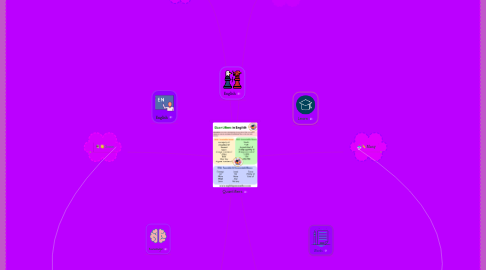
1. Many
1.1. ‘Many’ is used when we are talking about a plural noun. It is used for things you can count, that is, for countable things. For example: “How many friends do you have?”
2. Much
2.1. Much’ is used when we are talking about a singular noun. It is used for things that you cannot count, that is to say for countless things. For example: “How much money do you have?”
3. Some
3.1. It is used both for uncountable nouns or nouns and for countable nouns or nouns in the plural. It is used in affirmative and interrogative sentences (to affirm something); "any" is replaced in negative or interrogative sentences. It means an undefined, but limited amount.
3.2. Examples:
3.3. Affirmative phrase / accounting name:
3.4. She has some apples.
3.5. Affirmative phrase / uncountable name:
3.6. There is some milk in the kitchen.
3.7. Interrogative phrase / accounting name:
3.8. Can I have some cookies?
3.9. Interrogative phrase / uncountable name:
3.10. Would you like some coffee?
4. Any
4.1. It is used in the same contexts as “some,” but in negative or interrogative sentences.
4.2. Examples:
4.3. Negative phrase / accounting name:
4.4. I do not have any cats
4.5. Negative phrase / uncountable name:
4.6. He does not have any money.
4.7. Interrogative phrase / accounting name:
4.8. Are there any changes?
4.9. Interrogative phrase / uncountable name:
4.10. Is there any milk?
5. Few
5.1. They express a small number. They are used only with accounting names. As we have seen above, the option of using “few” or “a few” reflects the opinion on the expressed quantity. "Few" describes quantity negatively and "a few" describes it positively.
5.2. Examples:
5.3. Interrogative phrase:
5.3.1. Do you have a few dollars?
5.4. Affirmative phrase:
5.4.1. There are few tourists here today.
6. Little
6.1. They express a small amount and are used only with countless names. The choice to use "little" or "a little" reflects an opinion on the quantity. If you use "a little", it means a positive opinion about the quantity and if you use "little" it implies a negative opinion. For example: Interrogative phrase: Do you have a little money? Affirmative phrase: We have little time.
7. USE DIFFERENCES BETWEEN FEW vs LITTLE
7.1. FEW
7.1.1. A few
7.1.1.1. A little A little is used with positive / affirmative and countless phrases. To give you an idea, it usually also means "a small amount" or "some". Examples: There is a little milk in the refrigerator. Would you like a little water? Zoe got a little bif of pie. Can't you discount it a little? Little Little expresses a small size or a negative quantity. It also means "almost nothing" or "not much". Examples: I'm sorry, I speak little Italian. There was little time to finish my homework. The kitten is little. I have drunk little water this morning.
7.1.2. A few represents an affirmative / positive amount. It also means “a small amount”, but it is used with the following structure; A few + Accounting plural name (A few + Plural Countable Nouns)
7.1.3. Examples:
7.1.4. He has a few good friends so he is happy.
